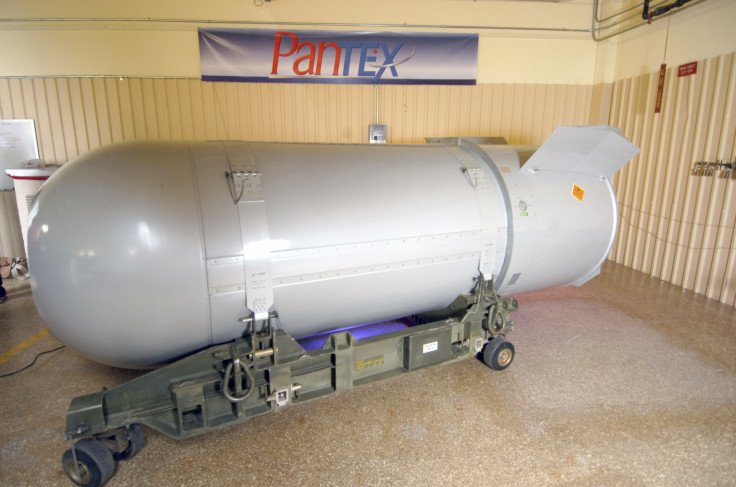A New Cold War? The Significance of North Korea's Hydrogen Bomb For United States, Japan And The World

North Korea's claim that it detonated a hydrogen bomb Wednesday has global implications for governments around the world. North Korea has long threatened to start a war against the United States, South Korea and its other enemies, and it's unclear what the reclusive nation will do next.
“This test is a measure for self-defense the D.P.R.K. has taken to firmly protect the sovereignty of the country and the vital right of the nation from the ever-growing nuclear threat and blackmail by the U.S.-led hostile forces and to reliably safeguard the peace on the Korean Peninsula and regional security,” an official declaration by the North Korean government said, referring to the North’s formal name, the Democratic People’s Republic of Korea.
A hydrogen bomb, also known as a thermonuclear bomb, is far more powerful than a conventional atomic weapon. It was created by American scientists and first tested in 1952 during the Cold War between the United States and the Soviet Union.
The United States, Japan and South Korea have tried to avoid conflict with North Korea in the past by offering much-needed aid, such as food, in exchange for the nation dismantling its nuclear weapons programs. It's unclear if North Korea is using its latest nuclear efforts to acquire more aid or to simply flex its muscles on the world stage.
North Korea does have intercontinental ballistic missiles that could potentially reach North America. The U.S. has missile interception technology it could use to block an attack, but if that happened it would likely trigger a global conflict. China has long been a close ally of North Korea.
In the past, Japan has shut down efforts to help a North Korea energy project after the North launched a Taepodong that flew over Japan in 1998, the New York Times reported. Various countries also imposed sanctions against North Korea in 2006 after it launched another long-range missile. In April 2012, the United States refused to deliver planned food aid when the North tried to launch a more advanced missile, the Unha-3. U.S. sanctions already ban most imports of goods and services from North Korea.
The development and use of the hydrogen bomb has long been defined by global politics. After killing thousands by dropping atomic bombs on Hiroshima and Nagasaki in Japan during World War II, the United States government delayed pursuing the development of the hydrogen bomb. But after the Soviets successfully detonated an atomic bomb in 1949, President Harry S. Truman moved forward with the creation of a hydrogen bomb project.
© Copyright IBTimes 2024. All rights reserved.






















